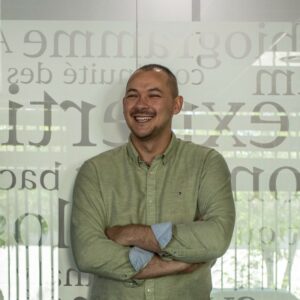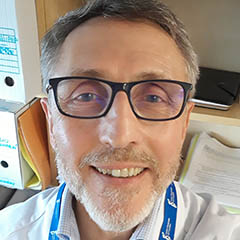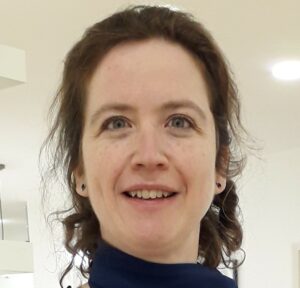
Claire ANDREJAK is a professor of pneumology, who works in the Amiens University Hospital. She belongs too to a research team, the UR 4294 AGIR, which is specialized in the design of new anti-infectious drugs. She will become at the end of January 2025 president of the French society of respiratory diseases. She is responsible of a hospital-university federation in the north west of France (Normandie, Hauts de France), called : host, pathogen, environment, an integrative approach of respiratory health.
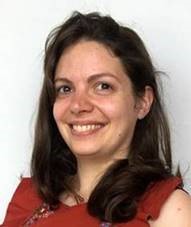
Nelly est Docteur en écologie microbienne. A GenoScreen elle est Chef de Projets en R&D Métagénomique.
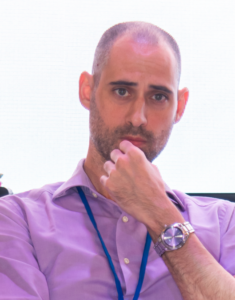
Andrea Benassi got his PhD in physics in 2009, he spent several years as an academic researcher working on mathematical and numerical modeling of surface and interface mechanical properties, mainly in Italy, Switzerland and Germany. He joined Chiesi in 2015 as a GMP process and product designer. He is currently working as innovation researcher developing and applying different modeling and simulation techniques to the design of inhalation products and the related manufacturing processes.
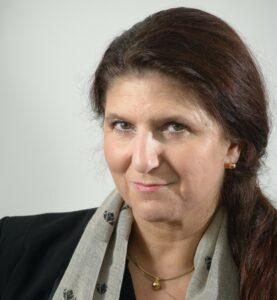
Sylvia Cohen-Kaminsky is Director of Research at the French National Center for Scientific Research (CNRS) and Vice-Chair of the Scientific Council of the Paris Saclay Faculty of Medicine. She works in the Inserm UMR_S999 unit, which is dedicated to « Pulmonary Arterial Hypertension: Pathophysiology and Therapeutic Innovation » and directed by Pr Marc Humbert. She is co-founder and Head of Science of ALSYMO. This company promotes the results of her research after maturation at SATT Paris Saclay, the local technology transfer acceleration office.
ALSYMO is developing an innovative therapeutic target and a first-in-class drug candidate protected by 3 families of patents issued worldwide for a disease-modifying treatment for Pulmonary Arterial Hypertension, a rare respiratory disease. This breakthrough innovation targets peripheral pulmonary vascular NMDA receptors, major players in vascular remodeling leading to PAH. The ambition is to bring this drug candidate to proof of human efficacy within 5 years.
She holds a Ph.D. in Immunology, obtained in 1988, and a Habilitation to Direct Research (HDR), acquired in 1998. She is a 2020 graduate from the « Life Science Leadership School, » an original MBA-like program dedicated to life sciences and healthcare entrepreneurship. She began her career at CNRS in 1990, working on autoimmunity, before joining Inserm in 2010, where she coordinates multidisciplinary diagnostic and therapeutic innovation projects to improve PAH. Thanks to her experience in innovation, she is a member of the Inserm Scientific Committee of Specialists CSS3 « Physiology and pathophysiology of major systems », the Scientific and Strategic Steering Committee COSS Carnot AP-HP (Assitance Publique-Hopitaux de Paris), the National Research Agency (ANR) LabCom Committee (Joint Labs for research involving private-public collaborations), the ANR CE17 « Translational Research on Health » Committee, and was recently appointed an alternate member of the Board of Directors of SATT Paris Saclay.
She is a member of international learned societies such as the ERS, the ATS, and the PVRI (Pulmonary Vascular Research Institute). As a member of the French Society for Immunology (SFI) since 1990 (board member 2006-2011 and general secretary 2012-2014), she has worked to promote equality for women in immunology and science. She represents the University Paris-Saclay on the Paris-Boston Women’s Forum, a network of universities for gender equality, an official initiative launched by the French Presidency of the G7. She is a Women in Sciences association member and participates in the Paris Saclay University Women in Sciences mentoring program dedicated to women PhD candidates.
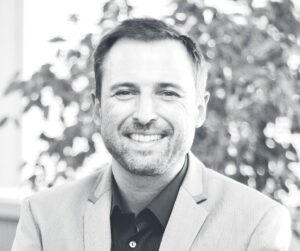
Dr. Samuel Constant is co-founder and Chief Executive Officer of Epithelix (http://www.epithelix.com) a Swiss biotech company specialized in tissue engineering.
Epithelix is a leader for in vitro assessment of drug efficacy and toxicity on human respiratory tract. Epithelix has developed unique 3D in vitro human airway tissues and testing services for studying airway pathologies like Asthma, Cystic Fibrosis and Chronic Obstructive Pulmonary Diseases, Bacterial and Viral infections. Samuel is in charge of global management and strategy the company.
Since 2006, Dr. Samuel Constant and his team have won 18 prizes for their scientific achievements, technological innovation, and business development.
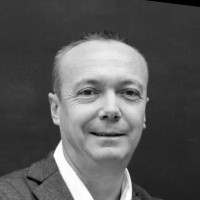
Erwan Corcuff was an engineer in the immunology department of the Institut Pasteur during 10 years.
In 2010 he co-founded and became CEO of AXENIS, a spin-off from the Pasteur Institute, which was one of the first worldwide CRO’s using humanized mouse models as preclinical predictive tools.
He joined the company “Janvier Labs” in 2019, as Operational Director and Head of Commercial and Scientific Development.
In 2024, He join Cynbiose as Chief Business and Marketing Officer.
Holder of a master’s degree in animal bioexperimentation and pharmacology and a DEA in immunology, he completed his studies with entrepreneurial training in business schools in France (HEC/EM Lyon) and the United States (Boston University).
Erwan Corcuff has authored more than 25 publications in international journals.
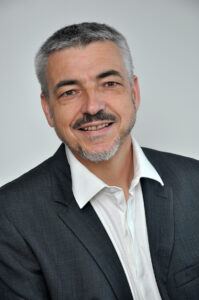
Philippe Duquenne is head of a laboratory at France’s National Institute for Research into Safety and Health at Work (INRS). He obtained his PhD in microbial ecology from the University of Burgundy (France) in 1998 for his work on soil microorganisms. He joined the INRS in 2003 as a microbiology researcher. He has worked on methods and strategies for measuring bioaerosols (density, size distribution and biodiversity of microbial communities and associated compounds in bioaerosols) as part of the assessment of occupational exposure. He has also led a cross-disciplinary ‘biological risks’ project at INRS.
He now manages a laboratory specialising in the spatial and temporal analysis of occupational exposure to airborne chemical and biological pollutants. The associated research focuses on the study of multiple exposures in different working sectors, the measurement of pollutants in real time and, in particular, the use of sensor networks. The aim is to collect and analyse information on work situations encountered in companies in order to provide guidelines for action to prevent chemical and biological risks.
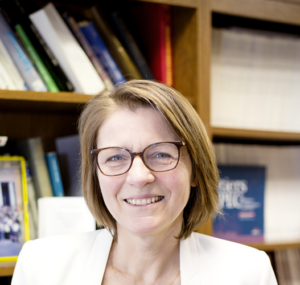
Evelyne Géhin serves as a full professor at the Université Paris-Est, in Créteil, France. She has a Ph.D in Physics from the Université Paris 6 (Pierre et Marie Curie), France. Prof. Géhin is director of the Center for Studies and Research in Environment and Systems at Université Paris-Est Créteil were she leads the research group “Source and Transfers of Airborne Contaminants” from 2002 to 2015. She is the executive President of the French Association for Aerosols Research (ASFERA), a board member of European Aerosol Assembly, and a board member of International Aerosol Research Assembly (IARA). Since 2020 she’s a Member of the French High Council for Public Health (Haut Conseil en Santé Public) within the CSRE (Commission specialized in environmental risks).
Her research interests are to understand the determinants of airborne contamination (aerosols and gas) in indoor environment. The research focuses on the development of experimental devices, models and statistical methods to enable identification and characterization of sources and transport of air contaminants in buildings. She has extensive experience in national research projects and PhD studies. Evelyne has been involved in different projects (networks or collaborative actions), and she is coordinating the “Indoor Air Quality” program for the master “Science and Environmental Engineering” at Université Paris Cité and Université Paris-Est Créteil.
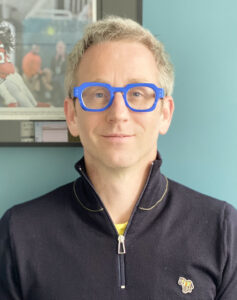
Thomas Guillard est professeur de bactériologie à la Faculté de médecine de Reims et praticien hospitalier au CHU de Reims (France). Après des études de pharmacie, un internat en biologie médicale et un doctorat en infectiologie, il a effectué son postdoctorat à Harvard Medical School. Il est lauréat de l’Académie Nationale de Médecine et l’Académie Nationale de Pharmacie pour son travail de Doctorat. Il est actuellement chef du service de bactériologie-virologie-hygiène hospitalière du CHU de Reims et dirige l’axe » bactériologie » au sein de l’unité Inserm UMR-S 1250 P3Cell. Ses recherches portent sur la réponse antibactérienne oxydative et l’homéostasie du phosphate de l’épithélium respiratoire dans le contexte des infections bactériennes dans les maladies respiratoires chroniques. Il appartient au comité éditorial de Plos Pathogens de la section bacille gram négatif. Il a publié près d’une centaine d’articles scientifiques évalués par les pairs.
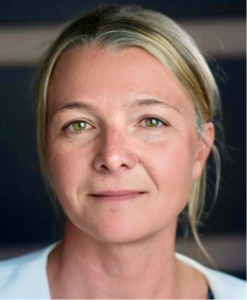
Geneviève Héry-Arnaud est professeure de bactériologie à la Faculté de médecine et praticien hospitalier au CHU de Brest (France). Après des études de pharmacie, un stage en biologie médicale et un doctorat en sciences de la vie et de la santé, elle a effectué une année postdoctorale à l’Institut Micalis (INRAE). Elle dirige actuellement le groupe » Microbiota » au sein de l’unité INSERM UMR1078. Ses recherches portent sur l’écosystème respiratoire (axe intestin-poumon, biomarqueurs, résistome) dans le contexte des infections bactériennes et virales dans les maladies respiratoires chroniques. Elle a créé le Centre d’Analyse du Microbiote de Brest, une plateforme dédiée à la mise en œuvre de l’analyse du microbiome dans les essais de recherche clinique. Elle a publié près d’une centaine d’articles scientifiques évalués par les pairs. Elle dirige actuellement deux études cliniques prospectives nationales portant sur les microbiomes respiratoire et intestinal. Elle vient de publier un livre intitulé « Ces microbes qui nous veulent du bien » (Ed. HumenSciences).
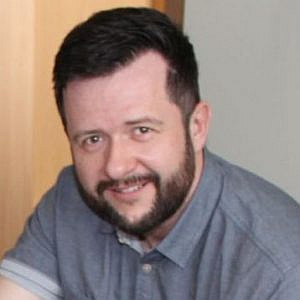
Jan’s main fields of interest are cell and molecular biology, oncology and toxicology. Throughout his career he has been involved in many projects aimed at development of diagnostic and testing methods as well as on understanding the molecular mechanisms involved in development of cancer. Currently he is member of SETOX and ESTIV. He coauthored 12 publications (240 cited references); 2 book chapters; and is a frequent speaker at international meetings and conferences.
Specialties: cell culture, 3D culture optimization, intestinal toxicity/metabolism assays, development and implementation of molecular biology tests for hereditary and sporadic cancers, transcriptional regulation, chromatin remodeling.
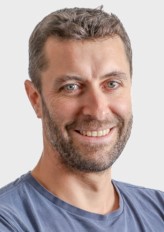
Olivier Moncorgé a effectué son doctorat en virologie moléculaire à l’université Imperial College London (Royaume-Uni), sous la direction du Pr Wendy Barclay et sur la polymérase du virus de la grippe, la barrière d’espèce et l’adaptation des virus influenza chez les mammifères. Après un premier post-doc dans le laboratoire du Prof Barclay, il a rejoint l’équipe du Dr Caroline Goujon à l’IRIM (Institut de Recherche en Infectiologie de Montpellier) en 2015 pour travailler sur le virus de la grippe et les facteurs antiviraux induits par l’interféron. Il a également développé plusieurs outils innovants pour mesurer la réplication du virus de la grippe et pour le criblage de composés antiviraux. Il est le co-auteur de 30 publications, notamment dans des revues de premier plan (Nature, Nature Genetics, Nature Microbiology, …). Avant son doctorat, OM a travaillé pendant 4 ans comme responsable du groupe de biologie moléculaire au sein d’une start-up française. Il est maintenant IR permanent CNRS dans l’équipe du Dr Caroline Goujon et est responsable depuis 2021 d’un plateau technique portant sur l’étude des virus respiratoires à l’IRIM. OM a plus de 15 ans d’expérience sur les virus de la grippe ainsi qu’une forte expérience sur les coronavirus, et une expertise sur de nombreux modèles cellulaires.
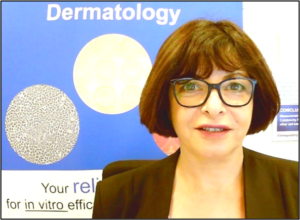
Dr. Hanan Osman-Ponchet, a leader in the field of in vitro testing, leverages her extensive experience to drive innovation at PKDERM. A seasoned scientist with over 20 years in drug development at Sanofi and Galderma, Dr. Osman-Ponchet holds a PhD in Biochemistry, Cellular and Molecular Biology. Combining this expertise with a Global Executive-MBA, she founded PKDERM, a French biotech company pioneering in vitro solutions for pharmaceutical and cosmetic product evaluation. A prolific author with over 30 publications and patents and a sought-after speaker, Dr. Osman-Ponchet’s dedication to scientific advancement and entrepreneurial spirit position PKDERM at the forefront of in vitro testing solutions. For further information, please visit her LinkedIn profile or personal website.
https://sites.google.com/view/hanan-osman-ponchet/home
https://www.linkedin.com/in/hanan-osman-ponchet-phd-emba-27708018/
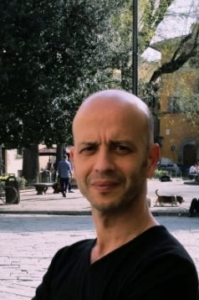
Mustapha Si-Tahar est directeur de recherche (DR1) Inserm et dirige le Centre d’Etude des Pathologies Respiratoires (CEPR – UMR Inserm U1100) à Tours. A ce titre, il supervise quatre équipes de recherche d’environ 90 personnes et il est également le responsable-adjoint de l’équipe « Physiopathologie des Infections Pulmonaires ».
Il a obtenu son doctorat en inflammation vasculaire à l’Institut Pasteur en 1997, puis a réalisé des recherches postdoctorales sur les réponses immunitaires mucosales à l’Emory University (Atlanta, USA) et au Massachusetts General Hospital (Boston, USA). Recruté à l’INSERM en 2001, il est revenu à l’Institut Pasteur pour étudier les mécanismes de défense innée de l’épithélium pulmonaire infecté par des bactéries ou des virus, avant de s’installer à Tours en 2012 pour créer avec ses collègues le CEPR.
M. Si-Tahar possède une expertise reconnue dans le domaine de la réponse innée au virus grippal. Ses travaux de recherche se concentrent plus particulièrement sur l’identification de stratégies anti-infectieuses ciblant l’hôte, avec un objectif de translation clinique. Il est l’auteur de plus d’une centaine de publications dans des journaux internationaux à comité de lecture et a contribué à plusieurs actions de valorisation socio-économique (brevets, création d’entreprise).

